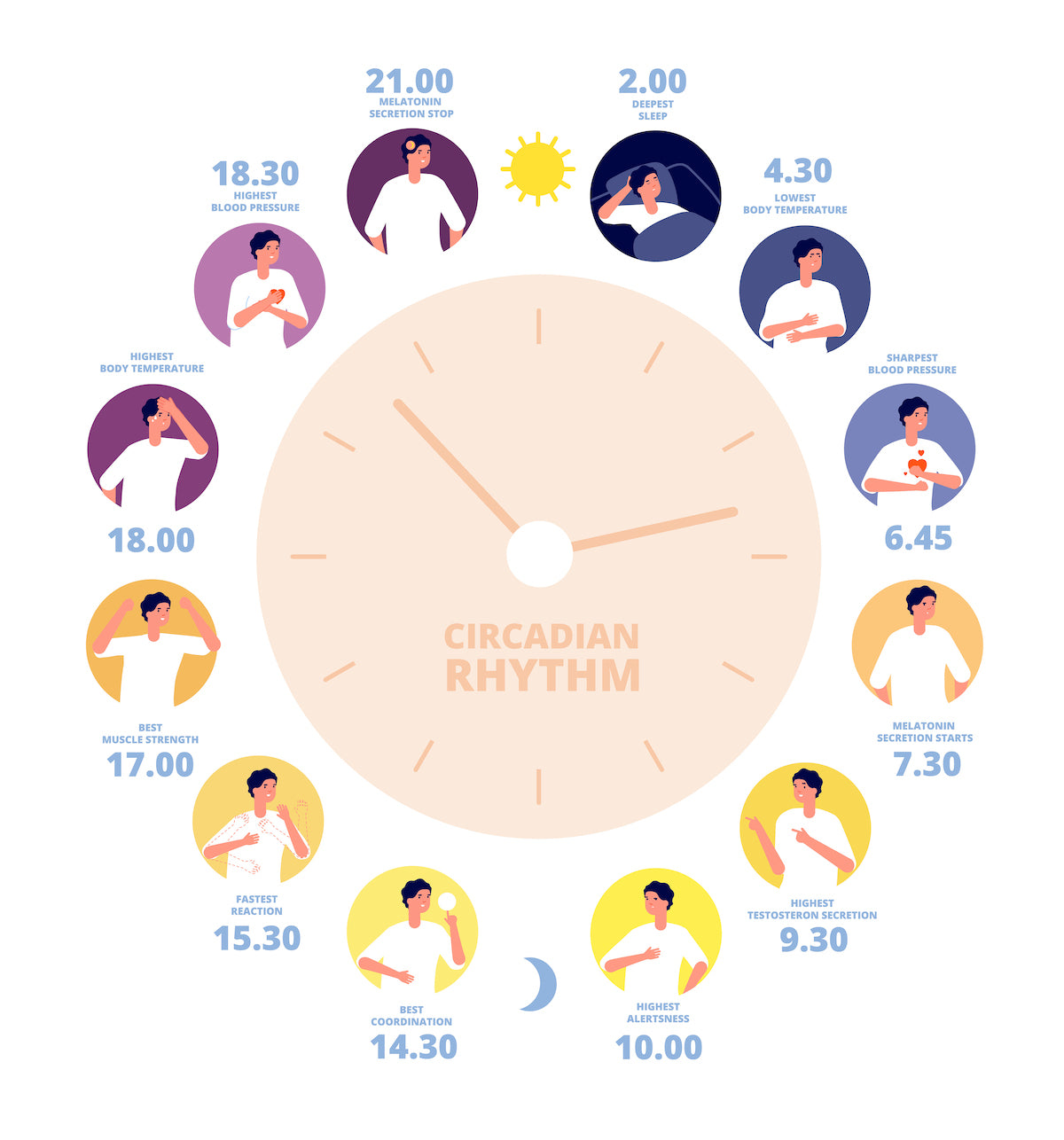What is your Circadian Rhythm?
We all dance to our own natural rhythm. It’s innate and built into the very fabric of our cells, hormones, glands and organs. Meet your circadian rhythm – your wake-sleep cycle.
Circadian comes from the Latin circa meaning ‘about’ and diem ‘a day’. Generally, as our bodies rise with the sun, hunger, digestion, cortisol levels, heart rate, mental sharpness, and mood lift too.
And as the sun lowers and darkness emerges, our bodies wind down, the hormone melatonin kicks in, our digestion slows and prepares for rest, our hearts move into repair mode, stress hormones taper off, our mental sharpness softens, and our body temperature falls.
This dance happens automatically and innately, assuming our bodies are connected to the natural rhythms of life – day and night – sun and dark.
External factors, from streetlights to office lighting to cell phones and computers, are the biggest threat to maintaining your natural circadian rhythm.
You see, melatonin is the hormone naturally made by the body, and its production is closely tied to light. In response to rising night darkness, the brain's pineal gland initiates melatonin production.
Drowsiness then increases with rising melatonin levels, which facilitates sleep. In addition, daily cycles of melatonin production normalise your circadian rhythm, reinforcing a stable sleep-wake schedule. Artificial light exposure halts the production of melatonin, telling the body to stay alert.
How does your circadian rhythm affect your health?
It falls to reason, then, that maintaining your circadian rhythm is one of our most essential endeavours. It is directly connected to our health and well-being.
Research continues to reveal that not getting a good quantity and quality of sleep significantly impacts our ability to function. Poor slumber is directly linked to weight gain, weakened immune systems, high blood pressure, low libido, poor balance, moodiness, memory issues, concentration and an increase in accidents.
How to improve your health by improving your circadian rhythm?
The key, then, is to prioritise sleep. Good, earnest sleep. The Greek poet Homer once said, “There is a time for many words, and there is also a time for sleep.”
Here is our fail-safe checklist for championing your melatonin production and circadian rhythm and getting a good night’s sleep:
- Commit to a night-time routine (check)
- Significantly dim or Switch off all artificial light at least a few hours before bedtime. This is a hard rule. No exceptions. (check)
- Light a beeswax candle. Yes, there are not many sources of natural light at night…but lighting a beeswax candlelight (flame and fire) is one of them. The red light of the flame stimulates melatonin production. (check)
- Create a relaxation ritual – have a slow shower or bath, read a good book, meditate, sip a cup of sleepy-time tea (check).
- Repeat…night after night (check).
- Notice the difference in your sleep, mood, libido, and memory. It doesn't take long (check).
Choosing a the right beeswax candle for your lifestyle is made easier with this blog post we did awhile ago.
More thoughts on how beeswax candles help with sleep in this blog.


